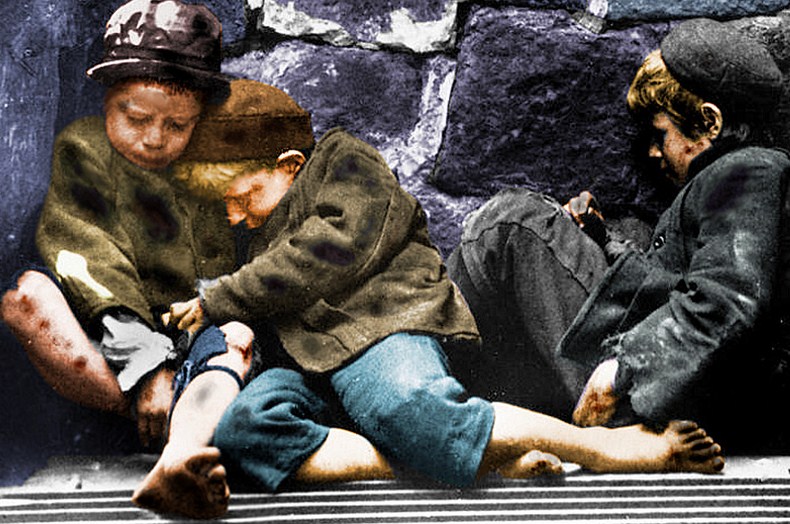Reducing Our Obscene Level of Child Poverty

I’m not someone who believes that poverty can ever truly be ended — I’m one of those “the poor will always be with you” types — but I do believe that the ranks of the poor can and must be shrunk and that the effects of poverty can and must be ameliorated.
And there is one area above all others where we should feel a moral obligation to reduce poverty as much as possible and to soften its bite: poverty among children.
People may disagree about the choices parents make — including premarital sex and out-of-wedlock births. People may disagree about access to methods of family planning — including contraception and abortion. People may disagree about the size and role of government — including the role of safety-net programs.
But surely we can all agree that no child, once born, should suffer through poverty. Surely we can all agree that working to end child poverty — or at least severely reduce it — is a moral obligation of a civilized society.
And yet, 14.7 million children in this country are poor, and 6.5 million of them are extremely poor (living below half the poverty line).
Today, the Children’s Defense Fund is releasing a report entitled “Ending Child Poverty Now” that calls this country’s rate of child poverty “a moral disgrace.”
As the report points out:
“America’s poor children did not ask to be born; did not choose their parents, country, state, neighborhood, race, color, or faith. In fact if they had been born in 33 other Organization for Economic Cooperation and Development (OECD) countries they would be less likely to be poor. Among these 35 countries, America ranks 34th in relative child poverty — ahead only of Romania, whose economy is 99 percent smaller than ours.”
It points out many of the corrosive cruelties of childhood poverty: worse health and educational outcomes, impaired cognitive development and the effects of “toxic stress” on brain functions. It also points out the “intergenerational transmission” properties of poverty:
“In one study, people who experienced poverty at any point during childhood were more than three times as likely to be poor at age 30 as those who were never poor as children. The longer a child was poor, the greater the risk of adult poverty.”
But the report is more than just an excoriation of the hollowness of our professed American values and our ethical quandary. It also serves as an economic manifesto, making the point that allowing child poverty to remain at these unconscionable levels costs “far more than eliminating it would,” calculating that an immediate 60 percent reduction in child poverty would cost $77.2 billion a year, or just 2 percent of our national budget.
For context, the report puts it this way:
“Every year we keep 14.7 million children in poverty costs our nation $500 billion — six times more than the $77 billion investment we propose to Reducing Our Obscene Level of Child Poverty - NYTimes.com:
